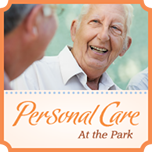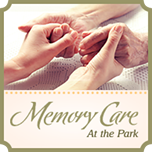
With allergy season in full swing, nature has already started to take a toll on those who suffer from pesky seasonal allergies. Older adults are not immune when it comes to allergies and often suffer the same affects others do, if not worse. Though a runny nose, itchy eyes, and headaches are to be expected, older adults face a set of unique complications in treating allergies. The most significant concerns are related to complicating factors, such as previously diagnosed health illnesses or chronic diseases.
With this in mind, it’s essential to take your or a loved one’s self-care efforts to the next level throughout allergy season. Make sure you are:
Keeping Your Eyes Out
Keep an eye out for the common signs of allergies in yourself or those you care for instead of waiting to take action if or when a reaction occurs. Typical allergy symptoms include sneezing, a runny nose, congestion, and itchy eyes. If you notice these signs, it might be time to seek treatment, like using allergy medication or avoiding allergens. Taking a few simple steps can help manage the discomfort, keep allergies under control, and have your loved one feeling supported.
Staying Informed
Being well aware of your surroundings is crucial for effectively managing allergies. Allergy symptoms, such as congestion or a sore throat, can be dangerous to loved ones with pre-existing cardiovascular disease. Older adults or their caregivers should monitor local pollen forecasts and modify their outdoor activities based on this information. Choosing to engage in outdoor activities on days with lower pollen levels can greatly decrease allergen exposure and help keep symptoms at a low. For you or a loved one, it might be beneficial to use an indoor air purifier and keep windows closed during times of high pollen.
Hydrating and Eating Healthy
Eating a nutritious diet and staying hydrated can help strengthen your immune system and reduce inflammation of the airways and skin that is caused by allergies. Older adults are encouraged to be considerate of their intake of foods high in sugar and trans fats, as these inflammatory foods can amplify allergy symptoms. Staying hydrated each and every day, especially during this season, helps keep nasal passages working effectively and prevents allergens from triggering a reaction. Make water your drink of choice and consider incorporating foods like watermelon, cucumbers, and gazpacho into your diet to lower the risk of dehydration.
Talking to Your Healthcare Provider
Did you know that doctors sometimes have difficulty diagnosing and treating older adults with allergies? This is because many physicians are focused on treating more pressing health issues. Antihistamines, the common medication prescribed to treat allergies, can also pose a threat to older adults when they are mixed with several other medications at the same time.
Doctors typically rely on antihistamines for symptom relief. While this type of medication helps to dry up excess mucus and nasal congestion, it can also be dangerous to older adults. Some of the most prevalent side effects of antihistamines include:
- Confusion
- Drowsiness
- Urinary retention
- Dry mouth
- Dry eyes
- Dizziness
- Mood and behavioral changes
If you notice any of these side effects, speak to your healthcare provider before eliminating medications or adding new ones to your or a loved one’s routine. Your doctor will likely prescribe an alternate medication, such as a nasal spray, eye drops, or topical treatment, which may offer quick relief with fewer potential side effects.











